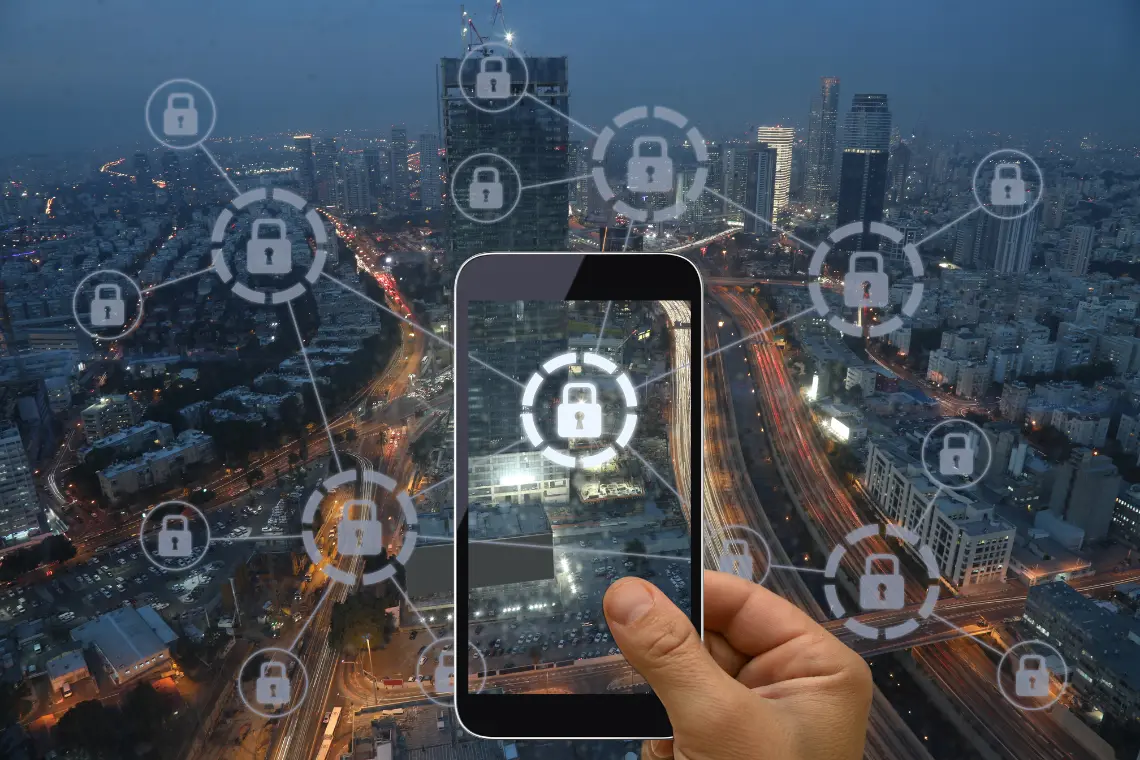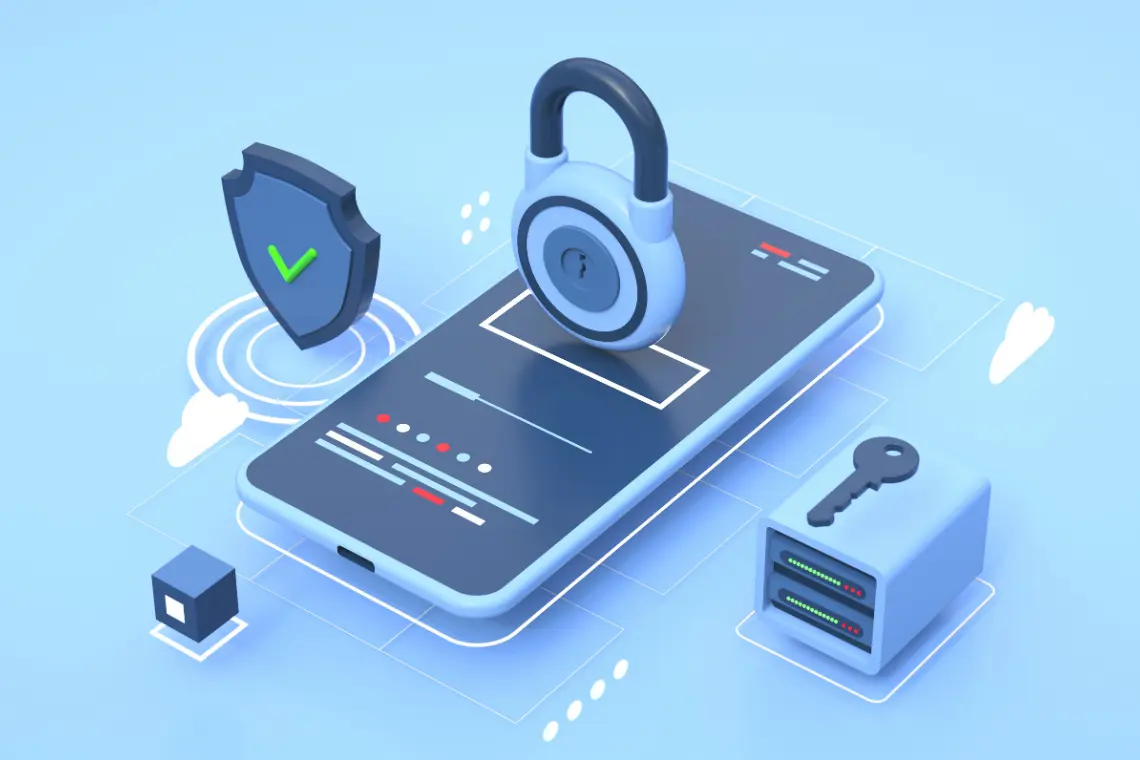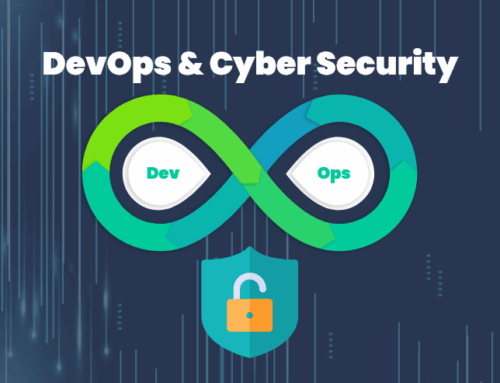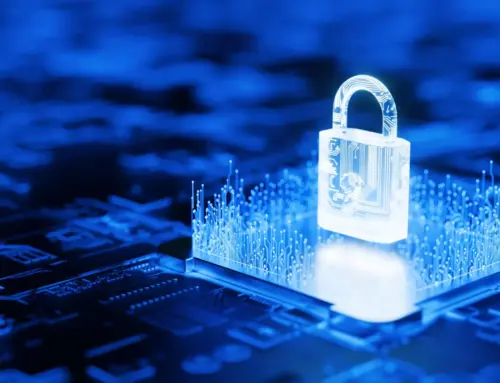
Cybersecurity For Digital Nomads.
Cybersecurity Tips for Digital Nomads: Cyber Security Secure Online
In today’s interconnected world, the digital nomad lifestyle offers unparalleled freedom and flexibility. However, it also presents unique cybersecurity challenges. As digital nomads traverse borders and operate in varying digital environments, maintaining robust cybersecurity becomes essential. This article aims to provide comprehensive security tips to help digital nomads protect their sensitive data and personal information while they work remotely. With the right knowledge and tools, digital nomads can confidently navigate the cyber landscape, ensuring their digital security remains uncompromised.
Understanding Cybersecurity for Digital Nomads
Teamwin Global Technologica Pvt Ltd stands as a beacon of expertise in the realm of IT services, specializing in advanced cybersecurity solutions. Cybersecurity, at its core, is the practice of defending computers, servers, networks, and data from malicious attacks. As digital nomads, understanding the essence of cybersecurity is crucial in safeguarding sensitive data and intellectual property. TeamWin’s secure networking solutions and threat detection systems empower individuals in the digital nomad lifestyle to fortify their defenses against potential cyber threats.
What is Cybersecurity?
Cybersecurity encompasses a wide array of practices and technologies designed to protect networks, devices, programs, and data from unauthorized access or damage, helping to mitigate potential cyber risks. In the context of digital nomads, cybersecurity is not merely a technical requirement; it is an essential pillar of their everyday operations. Teamwin Global Technologica serves as a trusted partner in this domain, offering cutting-edge security features and technologies to protect sensitive information from cyber threats. By understanding and implementing these cybersecurity measures, digital nomads can ensure their personal and professional data remains secure against cyber risks.
The Importance of Cyber Hygiene
For digital nomads, maintaining exemplary cyber hygiene is a non-negotiable aspect of their remote work routine. At Teamwin Global Technologica, we recognize the paramount importance of our customers’ businesses and prioritize their security needs. Cyber hygiene involves several key practices, including:
- Using strong passwords
- Regularly updating software and applying security patches is crucial for protecting your devices against emerging threats.
- Employing a password manager to mitigate the risk of unauthorized access
By adhering to these cybersecurity best practices, digital nomads can protect their data and devices from vulnerability and ensure a secure digital environment.
Unique Cybersecurity Challenges for Digital Nomads
The digital nomad lifestyle is fraught with its own set of cybersecurity challenges. Constantly connecting to public Wi-Fi networks can expose remote workers to significant risks, such as data breaches and unauthorized access. Moreover, the mobility inherent in digital nomadism means that physical security of devices is equally crucial. Understanding these unique vulnerabilities enables digital nomads to implement robust security measures, such as using a virtual private network (VPN) and encryption, to safeguard their sensitive data against potential cyber threats while they work remotely.
Essential Cybersecurity Tips for Remote Workers
Strong Password Practices
For digital nomads who are often on the move, strong password practices are a cornerstone of cybersecurity. Here are some essential practices that can help protect sensitive information:
- Use strong, unique passwords for each account to prevent unauthorized access.
- Utilize a password manager to generate and store complex passwords securely.
This practice significantly reduces the risk of a data breach by ensuring that even if one password is compromised, other accounts remain secure, especially when using a password manager. Additionally, regularly updating your passwords and avoiding the use of easily guessable information further fortifies your digital defenses.
Multi-Factor Authentication
Incorporating multi-factor authentication (MFA) adds an extra layer of security to your online accounts. This security measure requires more than just a password, demanding additional verification steps such as a code sent to a mobile device. By implementing MFA, digital nomads and remote workers can significantly reduce the vulnerability to cyber threats, such as phishing attacks and unauthorized access. At Teamwin Global Technologica, we emphasize the importance of MFA as a robust defense mechanism, enabling you to secure your accounts with confidence and maintain the integrity of your sensitive data even in uncertain cyber environments.
Encrypting Sensitive Data
Encryption is a crucial practice for digital nomads seeking to protect sensitive data while working remotely. By encrypting files, emails, and other forms of communication, you ensure that your data remains inaccessible to unauthorized entities. This is particularly important when using public Wi-Fi networks, as encryption safeguards your information from potential eavesdroppers. At Teamwin Global Technologica, we advocate for the use of advanced encryption technologies as part of comprehensive cybersecurity strategies. By prioritizing encryption, you not only enhance your data protection but also uphold the trust and confidentiality that your clients and partners expect.
Safeguarding Your Devices and Data
In the dynamic realm of the digital nomad lifestyle, safeguarding devices and data is paramount. As remote workers traverse varied cyber landscapes, they face unique cybersecurity threats that demand rigorous security measures. The digital environment is rife with vulnerabilities that can lead to unauthorized access, data breaches, and loss of sensitive information, particularly if a device is lost or stolen. Teamwin Global Technologica is dedicated to empowering its clients with robust cybersecurity solutions, ensuring that digital nomads can work remotely with peace of mind. By prioritizing device security and data protection, we help you navigate the complexities of the digital world safely and securely, especially if your device is lost or stolen.
Device Security Best Practices
Effective device security is the cornerstone of a secure digital nomad lifestyle. To protect your devices from cyber threats, it’s crucial to implement a suite of cybersecurity best practices. Here are some essential steps to mitigate potential cybersecurity risks:
- Regularly update your operating system.
- Install reliable antivirus software.
- Employ security keys and set up strong passwords to fortify your devices against unauthorized access.
At Teamwin Global Technologica, we encourage the use of advanced security measures to safeguard your devices, ensuring that your digital security is never compromised. By taking these proactive steps, you protect both your hardware and the sensitive data contained within.
Protecting Your Data on Public Wi-Fi
Public Wi-Fi networks, while convenient, pose significant cybersecurity risks to digital nomads. These networks are often unsecured, making them a hotbed for cyber threats such as data breaches and identity theft. To protect your data when using public Wi-Fi, it’s vital to employ a virtual private network (VPN). A VPN encrypts your internet traffic, ensuring that your sensitive information remains inaccessible to potential eavesdroppers. Additionally, avoiding transactions that involve personal information and sensitive data while on public networks can further reduce vulnerability. At Teamwin Global Technologica, we advocate for vigilant practices to maintain your security in these high-risk environments, providing you with the tools needed to protect your data effectively.
Using VPNs for Enhanced Security
Virtual private networks (VPNs) are an indispensable tool for digital nomads seeking enhanced cybersecurity. By encrypting your internet connection, a VPN provides an extra layer of security, safeguarding your data from unauthorized access and cyber threats. This is particularly crucial for those who frequently use public Wi-Fi networks, where vulnerabilities abound. Teamwin Global Technologica supports the implementation of VPNs as part of a comprehensive cybersecurity strategy, ensuring that your online activities remain private and secure. By utilizing a VPN, digital nomads can confidently navigate the internet, knowing that their personal information and sensitive data are protected from prying eyes.
Recognizing and Mitigating Cyber Threats
Common Cybersecurity Risks for Digital Nomads
In the dynamic world of digital nomadism, understanding the security risks is essential for maintaining a safe lifestyle. cybersecurity risks are pervasive and multifaceted. Digital nomads often rely on public Wi-Fi networks, which are notorious for their vulnerabilities. Such environments can lead to unauthorized access and potential data breaches. Moreover, the transient nature of the nomad lifestyle means that physical security of devices is equally paramount. Understanding these risks is crucial for digital nomads to implement robust cybersecurity measures. By recognizing common threats and staying vigilant, digital nomads can protect their sensitive information and maintain the integrity of their remote work operations.
How to Spot Phishing Attacks
Phishing attacks represent a significant threat in the digital landscape, targeting unsuspecting digital nomads through deceptive emails and messages that exploit their mobility and potential security risks. Recognizing the signs of a phishing attempt is essential in safeguarding your sensitive data. Be wary of unsolicited communications that request personal information or prompt urgent action. Check for inconsistencies in email addresses and URLs, as these can be red flags. Empower yourself with knowledge and stay informed about the latest phishing tactics. At Teamwin Global Technologica, we emphasize ongoing cybersecurity training to enhance your ability to identify and thwart these cyber threats effectively.
Responding to Data Breaches
In the unfortunate event of a data breach, a swift and strategic response is imperative to mitigate damage. Digital nomads must act quickly to secure their accounts and sensitive information. Begin by changing all passwords, utilizing a password manager to generate strong, unique credentials. Notify relevant parties and monitor your accounts for any suspicious activity. Engaging with cybersecurity experts can provide valuable insights into further protective measures. At Teamwin Global Technologica, we offer comprehensive support to help you navigate the aftermath of a data breach, ensuring your digital security is swiftly restored.
Conclusion: Staying Secure While Working Remotely
Recap of Key Cybersecurity Tips
As digital nomads traverse the cyber landscape, they must remain vigilant against security risks that could compromise their data. implementing core cybersecurity tips is vital to ensure a secure remote work environment. Embrace strong password practices and multi-factor authentication to safeguard your accounts, enhancing your account security significantly. Utilize encryption and VPNs to protect sensitive data, especially on public Wi-Fi networks, to reduce the risk of exposure if your device is lost or stolen. Regularly update your operating system and employ antivirus software to defend against cyber threats. These proactive measures form the bedrock of a robust cybersecurity strategy, empowering you to work remotely with confidence and peace of mind.
Building a Personal Cybersecurity Strategy
Crafting a personal cybersecurity strategy is essential for digital nomads striving to protect their digital assets. Begin by assessing your unique cybersecurity risks and vulnerabilities. Develop a comprehensive plan that encompasses security measures tailored to your remote work lifestyle. Incorporate tools such as password managers, VPNs, and encryption technologies. Stay informed about emerging threats and continuously refine your strategy. At Teamwin Global Technologica, we are dedicated to providing you with the resources and expertise needed to fortify your defenses and ensure your digital security remains uncompromised, particularly in the face of lost or stolen devices.
Resources for Continuous Learning
Continuous learning is a cornerstone of maintaining robust cybersecurity. Stay abreast of the latest cybersecurity trends, threats, and mitigation techniques through reputable sources. Engage in cybersecurity training programs and webinars to enhance your knowledge and skills. At Teamwin Global Technologica, we offer a wealth of resources designed to empower you in your cybersecurity journey. Our customer-centric approach ensures that you have access to the tools and information necessary to navigate the ever-evolving digital landscape, safeguarding your sensitive information and securing your remote work environment.
5 Surprising Facts About Cybersecurity for Digital Nomads
- Many digital nomads underestimate the importance of using a Virtual Private Network (VPN), which can encrypt their internet traffic and protect sensitive information on public Wi-Fi networks.
- According to studies, over 50% of digital nomads have experienced a cybersecurity incident, highlighting the vulnerabilities they face while traveling.
- Public charging stations, commonly used by digital nomads, can be a hotspot for data theft via “juice jacking,” where malware is installed on devices through charging ports.
- Using outdated software and applications can expose digital nomads to cyber threats; regular updates are crucial for maintaining security.
- Many digital nomads are unaware that cyber insurance exists, which can help protect them against various cyber threats and financial losses associated with data breaches.
What are the unique cybersecurity challenges faced by digital nomads?
Digital nomads are particularly vulnerable to various cybersecurity risks because they often rely on public Wi-Fi networks and work remotely from diverse locations. This exposes them to a higher level of cyber threats, making it crucial to adopt strong cybersecurity measures and maintain a robust cybersecurity posture.
How can digital nomads protect their data while using public Wi-Fi?
Every digital nomad should consider using a Virtual Private Network (VPN) when connecting to public Wi-Fi. A VPN encrypts your internet connection, providing an extra security layer that helps protect your sensitive data from cyber threats present on unsecured networks.
What are some essential cybersecurity tips for digital nomads?
Digital nomads need to implement consistent security practices, such as using strong passwords, enabling two-factor authentication, and regularly updating their security protocols. Staying informed about the latest security trends and cybersecurity news also plays a vital role in maintaining data protection.
How can digital nomads enhance account security?
To enhance account security, digital nomads should require multi-factor authentication for their accounts, which adds an extra security layer. Additionally, using a password manager can help in generating strong passwords and securely storing them, mitigating the risk of account breaches.
What are the main cybersecurity threats that digital nomads should be aware of?
The cyber threat landscape for digital nomads includes phishing attacks, malware, and unsecured networks. Understanding these main cybersecurity threats is essential for developing a solid cybersecurity policy and ensuring effective data security while working remotely.
What is the role of a security engineer in supporting digital nomads?
A security engineer can help digital nomads by designing and implementing security protocols tailored to their unique cybersecurity needs. This includes advising on best practices for device security and creating a comprehensive cybersecurity setup that addresses potential vulnerabilities in their workflows.
How can digital nomadism benefit from strong cybersecurity measures?
Strong cybersecurity measures enable digital nomads to work confidently anywhere in the world. By ensuring data protection and minimizing the risk of cyber threats, digital nomads can focus on their work and enjoy the benefits of the digital nomad lifestyle without constant worries about their online security.
What are the best practices for digital nomads to navigate the diverse digital terrains?
To navigate the diverse digital terrains effectively, every digital nomad should establish a strong cybersecurity foundation, including regular software updates, secure storage solutions for sensitive data, and an awareness of the security challenges associated with different locations and networks.







